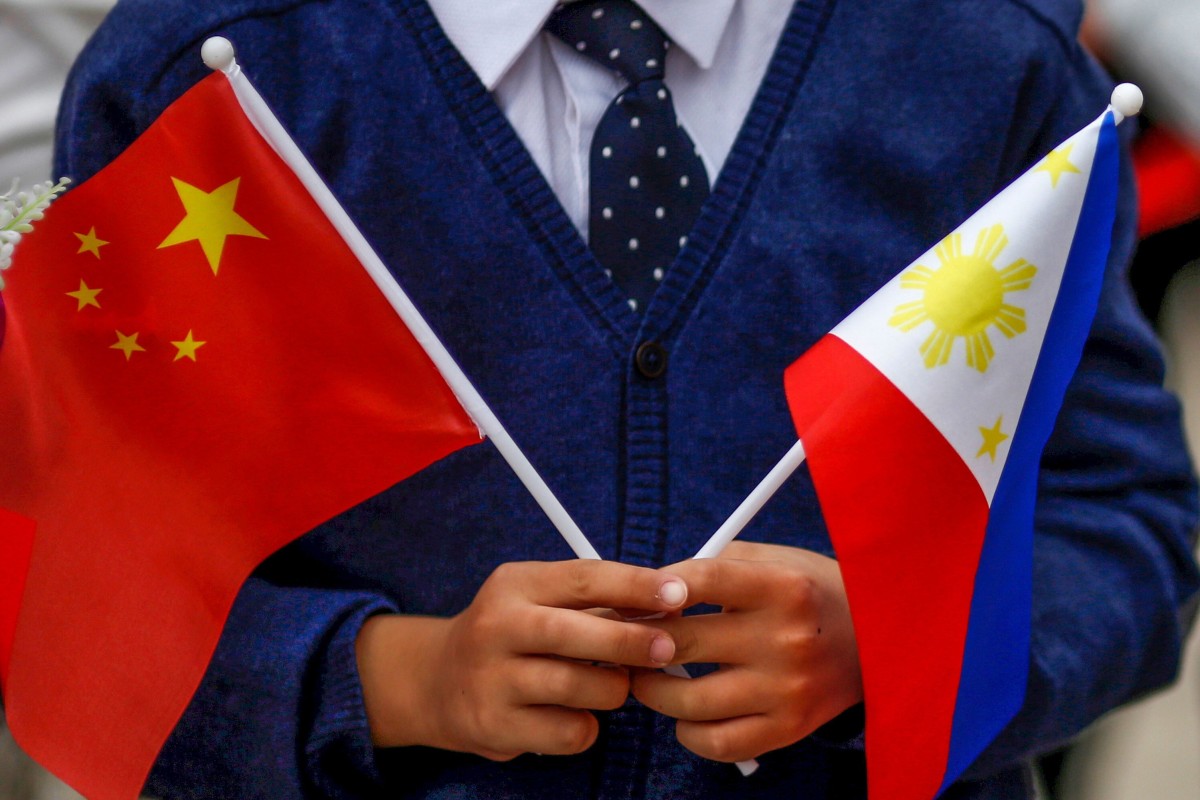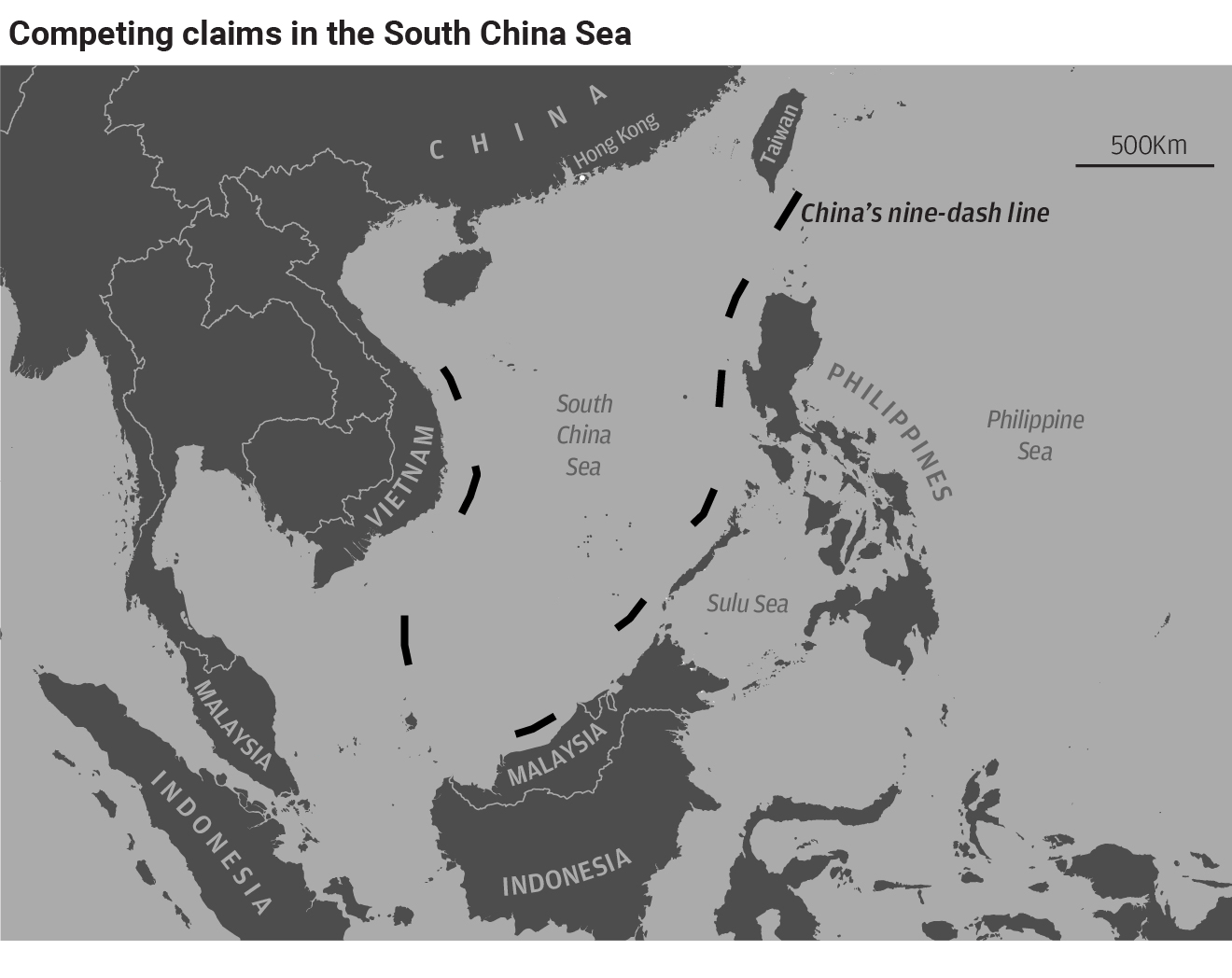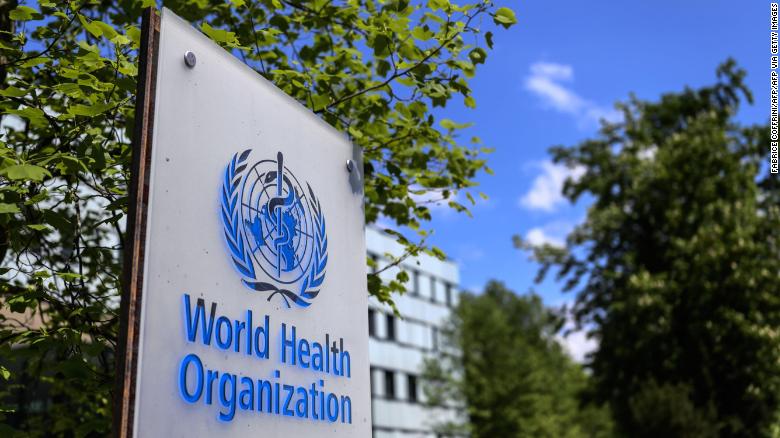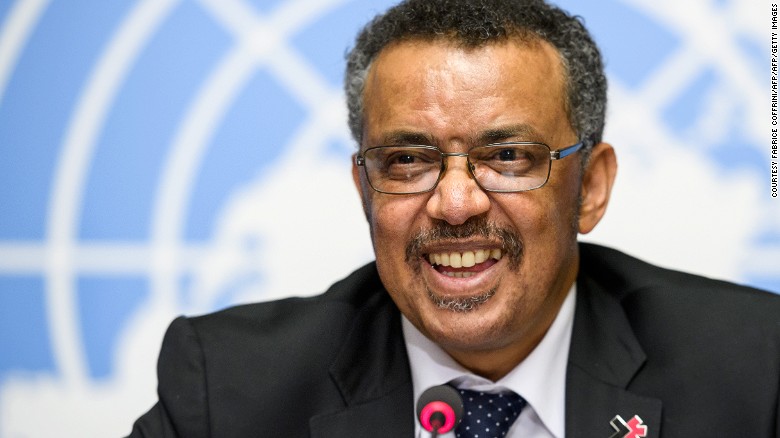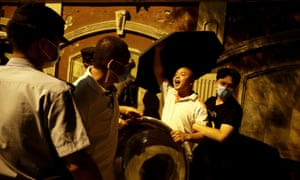
or days, the US consulate in the Chinese city of Chengdu was not just a site for curious onlookers but for residents eager to express pride in their country. Some waved the Chinese flag while others set off fireworks. In one video, a woman said she was “extremely happy” to see the consulate close. “We have kicked out one more hub for spies!” she said, smiling as she pointed at the building.
In another video, widely circulated on Chinese social media, a CNN reporter attempting to broadcast is drowned out by a group belting out a patriotic Chinese song. The crowd sings cheerfully, if discordantly: “Praising our beloved motherland as it goes towards prosperity and power.”
Residents noted how different the scene was to one in 1999, when thousands of Chinese protesters descended on the US embassy in Beijing, after the US bombed the Chinese embassy in Belgrade. Crying and pelting the building with eggs, stones, and any other objects they could find, demonstrators were angry at the US but also frustrated at how little their government could do to retaliate.
“Our country is not like before. We can do more than just make statements, we can actually take action,” says Wu, 25, who lives in Chengdu and visited the consulate on its last day on Monday, snapping a few photos to keep. “Back then China couldn’t afford to offend the US, but China is powerful now and not afraid of American imperialism.”
As China finds itself under attack abroad as a result of its increasingly aggressive global stance, nationalist sentiment at home appears to be growing stronger. Officials have honed support with the usual tools of propaganda and patriotic education, as well as new tactics, such as “wolf warrior” diplomacy, characterised by aggressive attacks on the country’s foreign critics.
Yet, cultivating a sense of nationalism that puts China increasingly at odds with much of the western world, also threatens to make current frictions more intractable, driving it closer to conflict with countries such as the US, its main rival. Beijing is locked in disputes with the UK, Australia and Canada over issues from Huawei to Hong Kong, and has blamed the US for those tensions.
“On both sides, the nationalist sentiment is stronger than ever before. There is no doubt that antagonistic nationalism has dramatically increased to a level that many have never seen,” says Shi Yinhong, professor of international relations and director of the centre on American studies at Renmin University of China. “This may mean the government policies will become more antagonist towards each other.”
Nationalism has long been a double-edged sword for the Chinese leadership – useful to bolster the ruling party’s standing but dangerous when emotions run too high. Anti-Japanese protests over a territorial dispute in 2012 turned into a riot, with residents in Shenzhen flipping and smashing Japanese cars. An editorial in the state-run China Daily at the time said: “This type of ‘patriotism’ will never receive applause.”
In the years since, Chinese officials have promoted nationalism rooted in “positive energy”, a general outlook of optimism and confidence in the country. Meanwhile, they have further narrowed the space for public discussion with more censorship and regulation of the internet, including detaining users.
“The Chinese government has increasingly leaned on nationalist rhetoric to justify its rule, while also keeping grassroots nationalism on a much tighter leash,” says Jessica Chen Weiss, associate professor of government at Cornell University and author of the book, Powerful Patriots: Nationalist Protest in China’s Foreign Relations.
“To some extent, the government has been able to use tough talk and bluster to appease domestic audiences, but swagger has real downsides for China’s foreign policy objectives.”
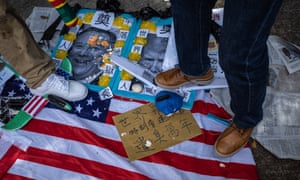
To people like Liu, 50, who runs a software company in Beijing, this has meant that nationalist views appear more prevalent than they truly are among the general population.
“Because of these controls, the voices that are allowed are the nationalist ones. So they are louder and recently, they are becoming more and more extreme,” he says.
As someone who depends on access to the US and other countries for his work, he has watched the deteriorating relationship with the US with dismay. He believes that many, like him, are worried and do not want to see their country so combative.
“We are really despairing because we can’t express our views. It’s like we are on a train that has lost control and there is nothing we can do but let it barrel forward,” he says.
Still, Chinese leaders may also not wish to see things out of control. Chinese state media have kept a close lid on topics such as a recent border clash with India, an incident that could easily have caused a wave of national anger. Chinese officials, while loudly condemning the US for ordering the Chinese consulate in Houston to close, have limited threats to promising an “equal response” to US actions.
“Chinese authorities were quick to clamp down on any sign of protest outside the US consulate in Chengdu, reflecting Beijing’s apparent desire to retaliate in a way that shows resolve but does not accelerate the current death-spiral in US-China relations,” says Weiss.
As the deadline for the Chengdu consulate’s closure loomed on Monday, consulate staff rushed to clear the compound, including a garden planted by American and Chinese stuff. A banner with the words, “Thank you, Chengdu, 1985-2020” was ordered. At dawn, the American flag was lowered for the last time.
Wu arrived that night, hours after the consulate was officially shut. It was late and the street, blocked off by police, was quiet but a crowd remained. Most were looking at the scene or taking photos.
Wu, who had come to “witness history”, says there was still a feeling of unease about the closure. Born and raised in Chengdu, a place known for being laid-back and more open, he believes his city has always been friendly to foreigners.
“I think most people feel this is a little negative. Even though we closed the consulate, we still feel some regret. The relationship between China and the US shouldn’t be like this.”

